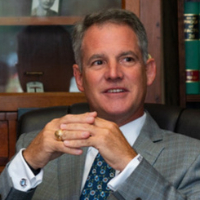Brooksville Felony Lawyer, Florida
Sponsored Law Firm
-
 x
x

Click For More Info:
-
Sword & Shield, P.A.
1437 Market St Tallahassee, FL 32312» view mapCriminal Defense Law Legal Representation You Can Trust
Our team of attorneys has the experience and creativity that will provide you with an outcome that will not hurt your rights or your future.
800-978-7301
Robert Allen Morris
✓ VERIFIEDCriminal, Felony, Misdemeanor, DUI-DWI, Divorce & Family Law
Robert A. Morris, Jr. has been practicing law in Hernando County since 1991 when he started his career as an Assistant State Attorney for the Fifth Ju... (more)
Richard H Langley
Motor Vehicle, Wills & Probate, Child Custody, Felony
Status: In Good Standing Licensed: 60 Years
Dale Marie Merrill
Criminal, Felony, Misdemeanor, DUI-DWI, White Collar Crime
Status: In Good Standing Licensed: 27 Years
FREE CONSULTATION
CONTACTSharon Y. Watson
Federal Trial Practice, Pension & Benefits, Family Law, Felony
Status: In Good Standing Licensed: 21 Years
Thomas C. Grajek
Traffic, White Collar Crime, Felony, DUI-DWI, Criminal
Status: In Good Standing Licensed: 31 Years
Bryan Scott Burgess
Power of Attorney, Felony, Consumer Rights, Life & Health
Status: In Good Standing Licensed: 45 Years
 Adrian Middleton Tallahassee, FL
Adrian Middleton Tallahassee, FL Practice AreasExpertise
Practice AreasExpertise


